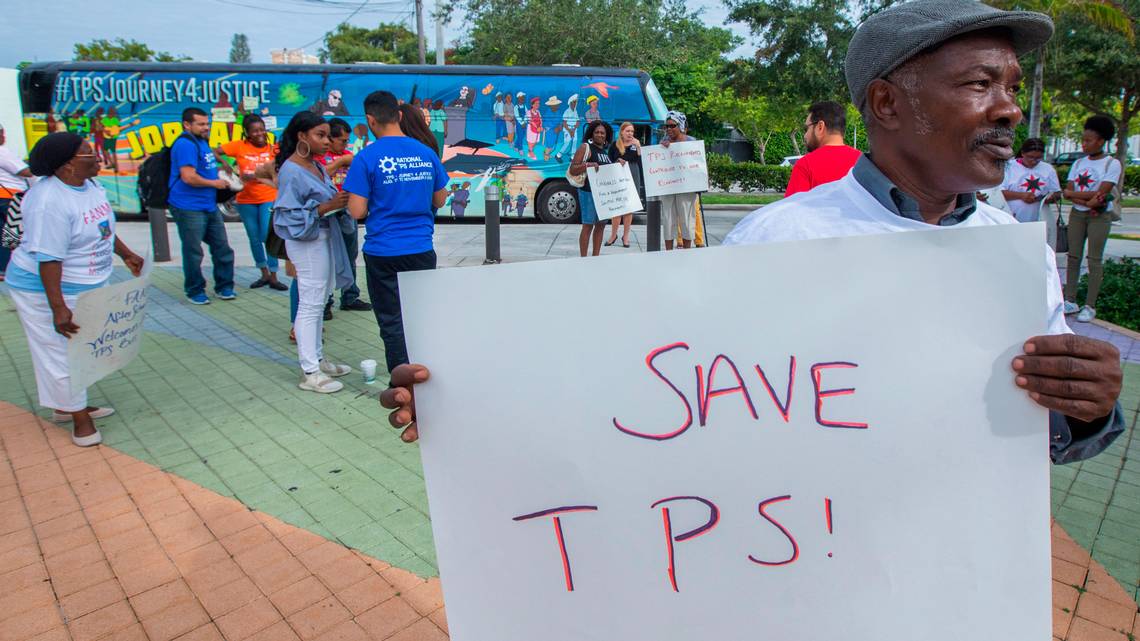|
Getting your Trinity Audio player ready...
|
The Department of Homeland Security (DHS), under Secretary Kristi Noem, has announced a significant change to Haiti’s Temporary Protected Status (TPS), reducing its extension and redesignation period from 18 months to 12 months. The updated TPS designation for Haiti expires on August 3, 2025.
The decision made public on February 20, 2025, partially vacates the July 1, 2024 notice, which initially extended Haiti’s TPS for longer. This change affects current beneficiaries and new applicants seeking protection under the redesignation. The initial registration period for new applicants will remain open until August 3, 2025.
DHS justified this modification by citing evolving policy priorities and resource allocation concerns. While the agency acknowledges ongoing humanitarian challenges in Haiti, the administration has chosen a shorter extension period, suggesting reassessing conditions closer to the new expiration date.
The number of Haitians eligible for TPS has skyrocketed in recent years: from 2011, were 57,000 Haitians eligible for TPS. From 2021 to 2024, the number of eligible Haitians increased from 155,000 to 520,694, a staggering 235% increase in three years.
What is Temporary Protected Status (TPS)?
TPS is a temporary immigration status granted to eligible individuals from designated countries facing extraordinary and temporary conditions that prevent their safe return. It allows recipients to stay in the U.S. during the specified period legally, protects them from deportation, and authorizes them to obtain work permits (EADs). Some TPS holders may also apply for travel authorization at DHS’s discretion.
Haiti’s History with TPS
Haiti was first designated for TPS after the 2010 earthquake devastated the country. The status has been extended and redesigned multiple times due to ongoing crises, including natural disasters, political instability, and violence.
Key milestones in Haiti’s TPS history include:
- 2011-2013: Initial designation and first extension
- 2013-2018: Multiple extensions based on worsening conditions
- 2019: DHS announced termination, but lawsuits delayed enforcement
- 2021: Re-designated by Secretary Mayorkas due to ongoing instability
- 2023: Extended again through August 3, 2024
- 2024: Originally extended for 18 months, now reduced to 12 months, ending August 3, 2025
Who Has the Authority to Extend or Terminate TPS?
The Secretary of Homeland Security has sole discretion, under the Immigration and Nationality Act (INA), to designate, extend, or terminate TPS after consulting with U.S. government agencies. The decision is not subject to judicial review.
At least 60 days before expiration, the Secretary must reassess conditions in the foreign country to determine whether an extension of 6, 12, or 18 months is warranted. If conditions improve, TPS must be terminated.
What’s Next for Haitian TPS Holders?
Haitian nationals in the U.S. holding TPS protection must prepare for potential status changes within a year rather than the initially expected 18 months. Legal experts and immigration advocates have voiced concerns over the impact this may have on thousands of Haitians relying on TPS for protection from deportation.
Advocacy groups are expected to push for another extension or legislative relief, while affected individuals are advised to consult immigration attorneys and stay informed on future DHS announcements.
Haitian TPS holders should comply with DHS requirements, renew work permits, and explore alternative legal options before the new August 3, 2025 deadline.




